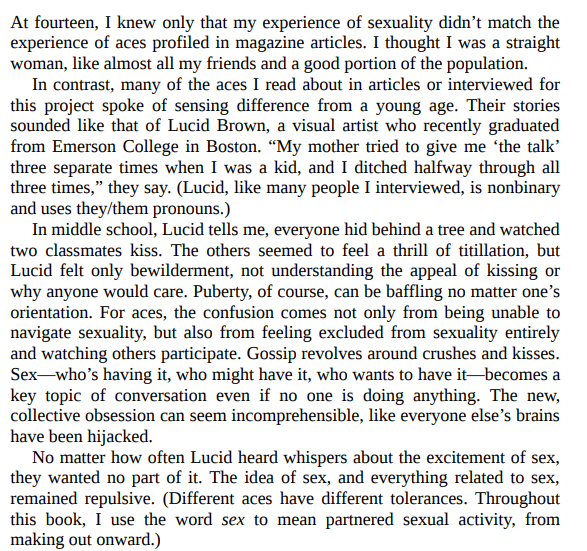
.jpg)
Without sexual attraction, can you talk about how you experience your queerness? Angela Chen: That's something that's really complicated. Jeffrey Masters: Many queer people first begin to experience and understand their sexual orientation through sexual attraction. Read highlights from the interview below and click here to listen to the full interview. To celebrate the release of Ace, Angela Chen spoke with the LGBTQ&A podcast about the large diversity of asexual experiences, the myth of sexual liberation, and why the goal of the asexual movement is to tell people: "You're not broken if you're different." Now a science journalist, Chen has turned her reporting on herself and other aces to author Ace, a crucial new book that will expand readers' beliefs about what it means to be queer. It wasn't until her 20s that she discovered how wrong she was. She read the definition and like many, equated it as hating sex, knowing right away that that didn't describe her. That can hide, for many people, their own asexuality." This was the case for Chen who originally learned what asexuality was when she was 14. "Emotional reasons," Chen says, or, "You might be bored, or you really love someone, or you want to feel attractive and desired and sexy.


There are a myriad of reasons why people have sex, apart from sexual attraction. But as Angela Chen reveals in her new book, Ace: What Asexuality Reveals About Desire, Society, and the Meaning of Sex, asexuality encompasses a broad spectrum of experiences, each filled with nuances and complexities that contribute to longheld misunderstandings around the asexual community.Īsexuals (also known as "ace" or "aces") can feel repulsed or indifferent to sex aces can also enjoy sex. On paper, it sounds simple: People who are asexual don't experience sexual attraction. This interview was originally conducted for the LGBTQ&A podcast.


 0 kommentar(er)
0 kommentar(er)
